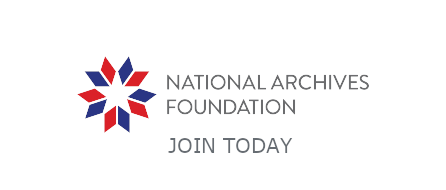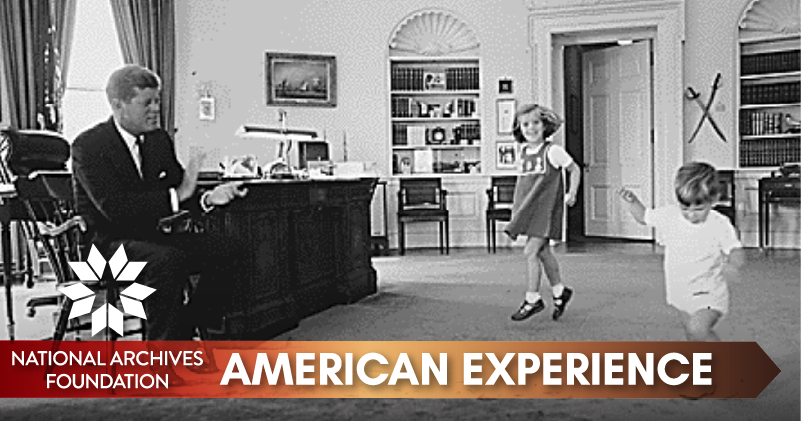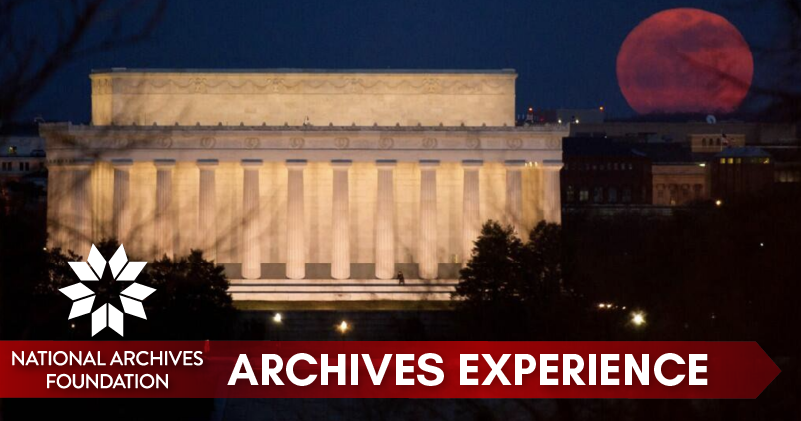Archives on the Rocks

Happy New Year! So much has happened since we last spoke – two planets aligned, we put 2020 behind us, the NFL playoffs have come into focus and the Foundation staff has been mulling over our 2021 resolutions. If you’ve been following our email newsletters: “American Experience” on Tuesdays and “History Snacks” on Fridays, we have news. Starting with this issue, we have decided to combine the newsletters into one new supernova of Archives content each Tuesday. We will continue to bring you both the deep dives and quick fun facts from our nation’s past. Without further ado, let’s raise a glass to our first edition!
Our country has a checkered past when it comes to alcohol and the government. Early on, beer and whiskey were the beverages of choice in times when safe drinking water was scarce. But one can look at our founding and the Whiskey Rebellion to learn how citizens and elected officials had opposing opinions on how involved the government should be with personal libations. Some religious organizations have long opposed drinking, and temperance organizations that aggressively campaigned to end or limit alcohol consumption were active in the U.S. as early as 1808. The temperance movement had its greatest breakthrough when Prohibition passed in 1919. The constitutional amendment, known as the Volstead Act, was in force until 1933, when it was finally repealed. What happened in the intervening years has been the subject of government investigations, books and movies! If you missed the Archives exhibition – “Spirited Republic” – a few years ago, you should check it out.
So whether you are imbibing this evening or skipping the booze, history is on your side, and we have some stories from the National Archives to prove it.

Spirited Republic
🍸Salud!

Patrick Madden
Executive Director
National Archives Foundation
Booze on the Battlefield
The American love/hate relationship with alcohol was not assuaged by the advent of World War II. Some advocated for the return of Prohibition, stating that alcohol was Hitler’s best friend and that American households were better served by spending their spare cash on war bonds than on booze. General John J. Pershing publicly stated that “the United States Government should ban liquor from the nation, close saloons, punish drinkers, and if necessary, death to the seller.”
Others, including Admiral Chester N. Nimitz, enjoyed a drink and didn’t mind saying so. In fact, he created a recipe for what he christened the Cincpac Special, a mixture of bourbon and rum designed to stretch a soldier’s liquor ration to last more than a week at a time.

Recipe for ‘Cincpac Special’
National Archives Identifier: 139308661
Admiral Nimitz recipe for the Old Fashioned Mix which he calls “CINCPAC SPECIAL”
- 1 clean one gallon jug
- 3 quarts Bourbon
- 1/4 of a fifth of gold label rum
- Add sugar cautiously until you can just detect the presence of sugar.
- Fill remainder of jug with tap water.
Desirable, but not necessary: drop two whole vanilla beans into the jug to stay for many refills of the jug. They last for years.
Pour generous portions over ice and serve it forth:
This recipe was developed by Admiral Nimitz when he was Commander in Chief of the Pacific at a time when liquor was rationed, a bottle a week to a man and frequently rum was the only kind available.
Ban Bars! Open Polls!
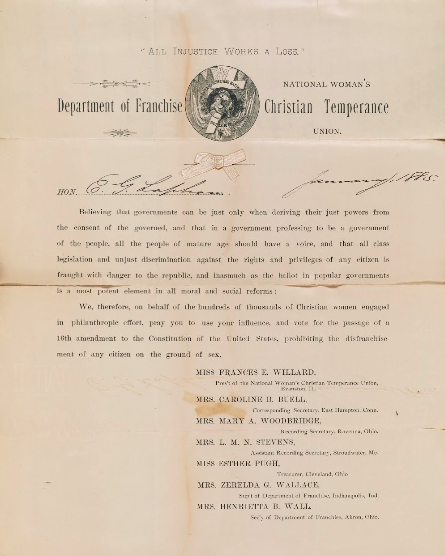
Letter from the National Woman’s Christian Temperance Union
The Women’s Christian Temperance Union was founded in 1874 with the aim to win the prohibition of alcohol consumption because of its ill effects on domestic abuse and child abuse. Soon after its founding, however, the union began supporting other issues that were important to women.
One of the union’s most important actions was supporting the movement for women’s suffrage in the United States. In 1886, members of its chapters from all over the country signed petitions in aid of a proposed constitutional amendment guaranteeing votes for women. The petitions were then sent to the Committee on the Judiciary. The legislation failed, but the fight for women’s suffrage persisted.

Temperance advocacy letter
A Whiskey A Day…
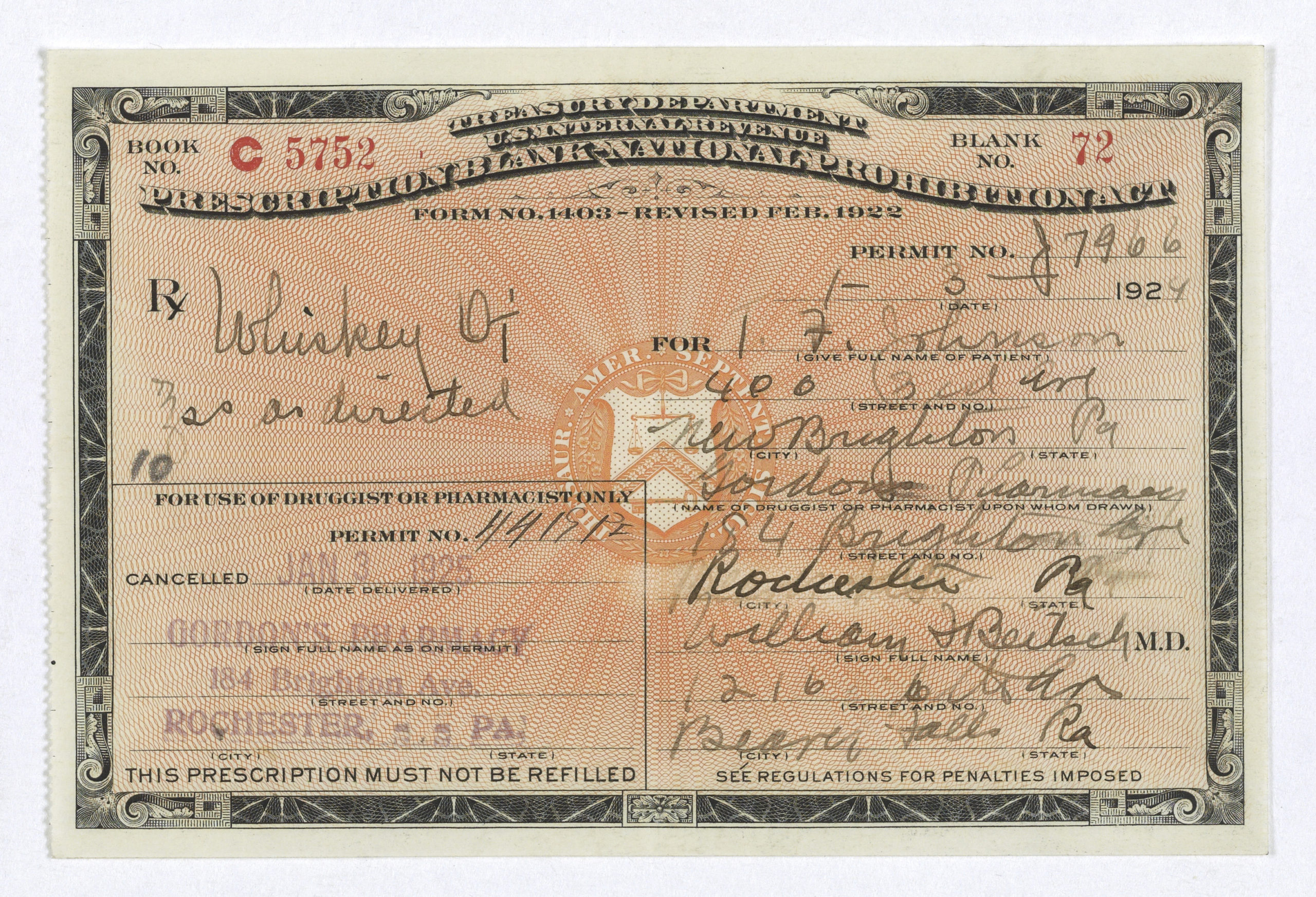
As prescribed
Hooch is just like vitamins…right? According to the U.S. Treasury Department during Prohibition, apparently it is. The Department authorized physicians to write prescriptions for medicinal alcohol to treat ailments ranging from cancer to indigestion to depression.

During Prohibition, Your Doctor Could Write You a Prescription for Booze
Smithsonian Magazine
But a visit to the doctor wasn’t the only way to get around the 13-year ban on the production, sale and distribution of alcohol. Farmers were allowed to produce wine for their own consumption and priests, ministers and rabbis were allowed to serve it during religious ceremonies. Hello self-described spiritual leaders!

Undercover Hooch Hunter


Learn more here
Because of the federal responsibility of enforcement, the National Archives holds records of some pretty creative enforcers of prohibition.
Sometimes called the “lady hooch hunter,” Prohibition Bureau agent Daisy Simpson was known for her acting ability and her skill at disguises, which allowed her to bust many bootleggers in the act. Special Agent Simpson posed as a variety of characters and attempted to buy liquor at speakeasies, hotels and restaurants.
Save the Sugar

Concerning Our Restricted Output
National Archives Identifier: 20762218
Alcohol isn’t the only beverage Americans have been discouraged from drinking throughout history. During World War I, there was a Coca-Cola shortage due to the conservation of sugar for the war effort.
This item is a poster from the Coca-Cola Company that appeared on a Clark Street streetcar line in Chicago. It comes from a file about Coca-Cola’s compliance with food regulations during World War I.


